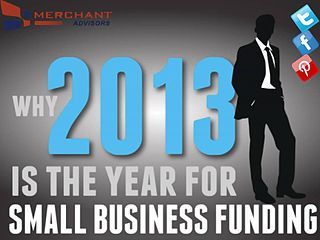From Guest Blogger Kelly Mansfield: Handy Environmental Management Tips for Start-ups

Of course you’ll also need to think about how to promote and sell your product. In today’s climate (in both the business and weather context), it’s also important to think about keeping an eye on the environment and, connected to that, saving money.
Simple but Effective
Aiming to care for the environment means taking lots of actions and making decisions about aspects of operating your business. Some of this is very simple, for example switching off lights in the office at the end of the day or in unoccupied areas during the day, or when there is sufficient daylight to illuminate the working area. You should also be conscious of things such as switching computers off properly when they are not in use, and not leaving them on standby.
Some of these are actions you will need to consider once you are actually operating your business, for example keeping a check on water use (Including dripping taps and leaking pipes!), and monitoring heating use – not keeping it turned up when it’s really not necessary. This will help you to reduce your energy bills.
Implement an Environmental Management System
Once you are up and running, you could also implement an Environmental Management System (EMS) – an increasingly mainstream tool that helps you identify and manage environmental risks. It also helps you to gain financial benefits, for example through reduced waste and energy bills.
There are environmental and financial issues that you will need to work on whilst you are planning to start up a new business though. For example, could you aim to run a paperless office? This would enable you to create less waste, which would of course save you money and at the same time go towards helping the environment. However, you would have to be careful about the systems you use in place of paper use. You would be likely to use more technology, so you’d need to be aware of the energy use and cost of doing so.
Reduce, Reuse, Recycle
If your new business is producing a product of any sort you will also need to make decisions about packaging design and development. Will this packaging be recyclable? You should aim to give customers the opportunity to recycle what will become waste for them. You should also think about, and plan to use reusable products in the office, for example bags.
While you are making all of these decisions about your new business, it’s also important to consider increasing your knowledge around climate risk, carbon emissions and energy consumption, so that you can monitor these environmentally significant issues once you are up and running.
Some guidance on these issues is important, as every start-up business is different and not all practical options are suitable. For example, you may by necessity have to continue using paper in your office. But remember, there options to reduce this – for instance, by printing or photocopying double-sided.
Operating Effective Waste Systems
Linked to these issues is the need to operate waste systems in the office. Obviously the ideal is to create less waste in the first place, but whatever is created needs to be disposed of in the most effective way to aid the environment. The simplest system you can put in place is to have recyclable products disposed of in one bin and other products in another. You’ll need to encourage staff to use these properly and ensure that all recyclable products are indeed recycled!
Trial Alternative Transport
Another significant issue for start-ups is travel. Perhaps your business will require you to travel frequently for meetings? If this is the case, could you look at implementing practices such as conference calls? This would save money, time and the effect on the environment!
Linked to this, and a final issue to highlight, is when you think about travelling to and from work by car. To reduce the costs (petrol and parking), and environmental effects of this habit, could you encourage your staff (and you!) to cycle to work, or use public transport where possible? While saving money on the use of expensive parking spaces, you could also look at making money by hiring out those spaces you’re not using to other companies. A great financial and environmental benefit.
About the author:
Kelly Mansfield, Editor and Writer, Workplace Law
Workplace Law Environmental specialises in environmental management systems and compliance.
We are an established licensed IEMA training provider. Our specialist consultancy work includes environmental management systems and auditing, including ISO 14001, energy efficiency, and legal compliance.
